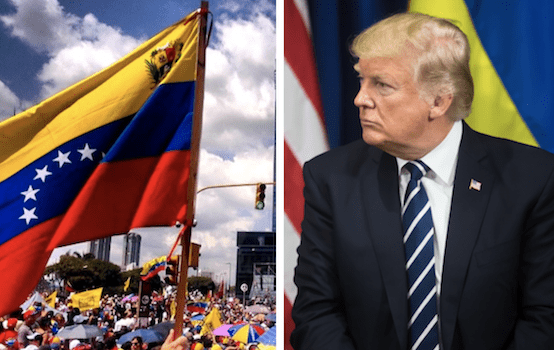In Venezuela, Sanctions Make a Terrible Situation Even Worse

Francisco Rodriguez and Jeffrey Sachs warn against the possibility of civil war and foreign military intervention in Venezuela, and they fault the Trump administration for its reckless interference:
On this great challenge, US President Donald Trump’s administration has gravely miscalculated. When the United States chose to recognise Guaidó as Venezuela’s president – along with a group of Latin American countries – and ban oil trade with the Maduro government, it was betting that the pressure would be sufficient to topple the regime. As a former senior US official told the Wall Street Journal, “they thought it was a 24-hour operation.”
The administration and the opposition both expected quick, relatively easy success, and at each step they have failed to consider what happens next if success continues to elude them. The difficulty in forcing Maduro from power was foreseeable and should have been anticipated, but because Trump was heeding the advice of hawkish ideologues and was following his own bad instincts he plunged into the crisis without any clue how hard it would be. The authors note that even if U.S. pressure manages to split the military, that would likely lead to civil war:
Maduro’s ability to withstand intense US pressure is not a surprise to close observers of Venezuela’s military. The centralised structures of command and control of military intelligence, as well as the personal interests of senior officers who control major chunks of the economy, make it highly unlikely that the army will turn on Maduro.
US provocation might create a schism between military commanders and more junior officers, but that would only make the plunge into a bloody civil war more likely. To date, there have been no defections among high-ranking officers with direct control of troops.
To date, there have reportedly been about 300 desertions from a force of about 100,000. That number may grow over time, but it is a bad sign for the opposition that there have been so few to abandon Maduro after more than a month. If the military splits, a peaceful transition becomes much less likely, and if it remains largely united behind Maduro there won’t be a transition at all.
Meanwhile, the U.S. is strangling the Venezuelan economy with its sanctions. The authors warn that U.S. sanctions will end up starving the population if they remain in place for very long:
Even without military intervention, US sanctions policies, if sustained, are bound to create a famine [bold mine-DL]. By cutting off Venezuela’s oil trade with the US and threatening to sanction non-US firms that do business with Venezuela’s state-owned oil company, the Trump administration has created one of the most punitive economic sanctions regimes in recent history.
But rather than provoking a coup, economically isolating a country that essentially feeds itself with its oil export revenues could lead to mass hunger instead.
Sanctions are always punitive, but as Rodriguez and Sachs point out the sanctions on Venezuela are unusually so. In both the Iranian and Venezuelan cases, the ones to suffer from the punishment inflicted on their countries are the poorest and weakest among the civilian population. The people enduring the mismanagement, corruption, and abuses of authoritarian systems already have enough problems without having their supplies of food and medicine cut off by the coercive policies of outside governments. Because Venezuela’s humanitarian crisis was already quite severe, choking off their supplies of food and medicine is exceptionally cruel and unjust.
An administration that was genuinely concerned with the welfare of the people wouldn’t strangle their economy with sanctions, but that is exactly what this administration has done to Venezuela. At the very least, the U.S. should not be making the hemisphere’s worst humanitarian and economic crisis even worse, but that is what our policy is doing:
The worst economic crisis in modern Latin American history has gotten “even worse” than expected as new U.S. sanctions exacerbate pain on Venezuela, according to the International Monetary Fund.
Comments